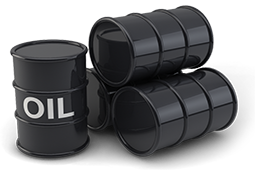
Goldman Sachs: OPEC, Allies Will Achieve Their Goal by April


The 14-nation producer group and its allies led by Russia set out to balance the market after oil prices plunged more than 40% at the end of last year. To do that, they aim to keep 1.2 million barrels per day off the market in the first six months of the year, CNBC reported.
"OPEC is pursuing a shock and awe strategy" by slashing output at the start of their production-cutting deal, Currie said on Monday.
He noted that OPEC is throttling back output faster than Goldman expected, while Venezuelan supply continues to tank and Russia says it will accelerate its production cuts.
"This market is likely to be rebalanced by April," he told CNBC.
That will force OPEC to lay out its plans for lifting the production curbs by May or June, he said. Currie believes that by telegraphing its exit strategy, OPEC can dissuade US drillers from turning on the taps, thereby preventing another price-crushing oil glut.
However, OPEC's "shock and awe" policy, combined with robust oil demand, could easily push Brent crude oil back to $70 to $75 a barrel in the near term, up from current prices in the mid-$60 range, Goldman forecast last week.
Saudi Energy Minister Khalid al-Falih recently told CNBC he is leaning towards extending the six-month deal into the second half of 2019.


Trump weighs using $2 billion in CHIPS Act funding for critical minerals

Codelco cuts 2025 copper forecast after El Teniente mine collapse

Electra converts debt, launches $30M raise to jumpstart stalled cobalt refinery

Barrick’s Reko Diq in line for $410M ADB backing

Abcourt readies Sleeping Giant mill to pour first gold since 2014

Nevada army depot to serve as base for first US strategic minerals stockpile

SQM boosts lithium supply plans as prices flick higher

Viridis unveils 200Mt initial reserve for Brazil rare earth project

Tailings could meet much of US critical mineral demand – study

Kyrgyzstan kicks off underground gold mining at Kumtor

Kyrgyzstan kicks off underground gold mining at Kumtor

KoBold Metals granted lithium exploration rights in Congo

Freeport Indonesia to wrap up Gresik plant repairs by early September

Energy Fuels soars on Vulcan Elements partnership

Northern Dynasty sticks to proposal in battle to lift Pebble mine veto

Giustra-backed mining firm teams up with informal miners in Colombia

Critical Metals signs agreement to supply rare earth to US government-funded facility

China extends rare earth controls to imported material

Galan Lithium proceeds with $13M financing for Argentina project

Kyrgyzstan kicks off underground gold mining at Kumtor

Freeport Indonesia to wrap up Gresik plant repairs by early September

Energy Fuels soars on Vulcan Elements partnership

Northern Dynasty sticks to proposal in battle to lift Pebble mine veto

Giustra-backed mining firm teams up with informal miners in Colombia

Critical Metals signs agreement to supply rare earth to US government-funded facility

China extends rare earth controls to imported material

Galan Lithium proceeds with $13M financing for Argentina project

Silver price touches $39 as market weighs rate cut outlook

















